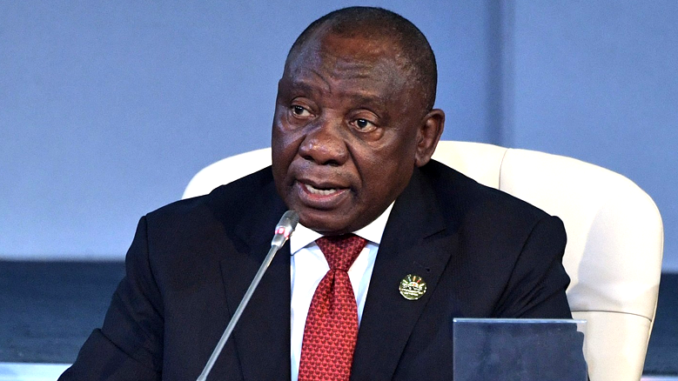
Cyril Ramaphosa was elected the President of South Africa by the National Assembly in February. His signature issue has been the redistribution of land from white ownership to black ownership.
It is the mechanics of that transition which are causing strife in South Africa today.
For decades, the official position of the South African government has been to promote more black land ownership. This has been performed by facilitating purchases at fair market value with loan and grant preferences to black South Africans experienced or educated in farming. Through these transactions, performed between willing participants, white ownership has declined from 93% of the land in 1994 to 72% today.
Under Ramaphosa, this is not an acceptable rate of reduction. To speed things along, two large farms have been targeted for seizure. The farmers are to receive ten percent of the current market value. In violation of the law, the farmers are currently being denied the ability to contest the seizures.
This is all in preparation of greater “reforms”. Per Reuters, the National Assembly is currently looking at a Constitutional revision which would allow the country to seize land without compensation of any sort.
A group which formerly had strong ties with Ramaphosa, the Economic Freedom Fighters, strongly supports the change. They break only with the President in that they believe the reforms do not go far enough.
In a follow-up question, EFF leader Julius Malema said the state must own all the land – including the wealthy Cape Town suburbs of Hout Bay and Camps Bay.
News 24
A racial component beyond the official one has been introduced by a South African farming group, AfriForum, which claims to have exposed an internal government memo detailing a list of white farms which are to be seized without compensation. This has been strongly denied by the South African government, which has accused AfriForum of attempting to foment discord in overseas nations in order to increase economic pressure against the planned Constitution change.
This is important, because the key to all of this is economics. Ramaphosa was elevated to the Presidency specifically because of the falling national currency and internal economic problems. Ramaphosa is an avowed socialist, and is attempting to enact socialist “solutions”. While it is certain that a racial component may be a significant factor in the choice of which land he wishes to seize, his economic philosophy of land redistribution is expected to be enacted. This, despite the fact that the government’s internal offices are warning that seizure without compensation is likely to trigger defaults which would cost the government billions.
The people of South Africa are desperate to be lifted out of poverty. To that end, they have placed their faith in a man who believes that governmental asset seizure is a good motivator for foreign investment and internal economic development. This is unlikely to end well.

1 Trackback / Pingback
Comments are closed.